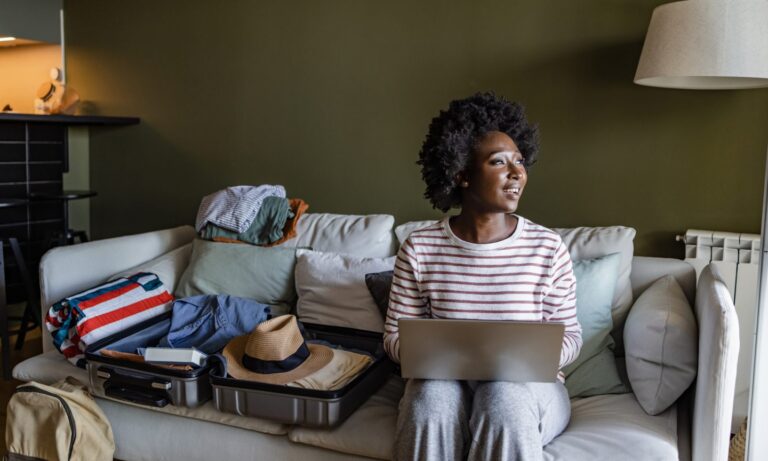Not just for you, but also for everyone else: Booking airfare has never been more difficult. Booking is more difficult than ever. It’s not just you. The airlines are using behavioral economics, a new academic discipline that is still in its early stages of development to encourage customers to spend more.
Cait Lamberton is a marketing professor at Wharton School of the University of Pennsylvania. She says that behavioral economics developed from integrating ideas from psychology with standard economic theories. Standard economics says that if you make a decision based on a limited-time offer and pay more than usual, you have made an irrational choice. The behavioral economists say that your brain does not respond to scarcity .”.
Many of these seemingly irrational decisions can influence how we buy.
Loss aversion, for example makes us more sensitive to money loss and we are therefore more inclined to purchase something such as trip insurance. When presented with a worse third option, the “decoy” effect makes it more likely that we will choose two less-than-optimal choices. Airlines may use a “decoy” like presenting a premium ticket that is expensive but has fewer amenities. This may cause the premium ticket which offers more features to appear more attractive.
The airlines are aware of our tendencies, and they know how to manipulate us. To save on airfare, it is important for customers to be aware of how airlines have engineered the shopping process to take advantage of our prejudices.
Do not buy because others are
The airlines will employ a marketing technique known as “social proof”, which suggests that other travellers are also adding certain products to their itinerary, like trip protection. Experts say that these tactics are not very useful for the consumer.
Lamberton says that the messages you see during the check-out process, such as the number of customers who insured their trips today, should not influence your purchase decision because they are often devoid of context. She asks, “Is it a large number of people or just a small group?”
Prepare for additional fees
One bias which should be heeded by anyone looking to purchase an airline ticket is “decision fatigue”. This means that we make poorer decisions when forced to make multiple choices in quick succession.
Which airline? Which is better, an early flight or a later one? What if you want to pay for the window seat now? Pay for your checked luggage now? Upgrade to Premium Economy? Our ability to make the best decisions diminishes with each choice.
In fact, according to a study in Marketing Science published in 2020, customers make suboptimal choices when the prices are “dripped” through out the entire checkout process. This is largely due to their unwillingness of starting over.
It’s not easy to overcome decision fatigue. It takes energy and time to realize that a flight was more expensive than expected and start over. So, book flights when you are not in a hurry and can take your time to compare prices.
Lamberton says that if you are going to be able to change your biases you need to take the time to stop and pay attention.
Understand your preferences
It is important to know what you need before going shopping. You could be swayed if you allow the salesperson to upsell.
Lamberton, Lamberton’s doctoral advisor says: “Know your utility function.” Utility functions are economic terms for how satisfied you feel with a product. You have to understand what is important to you .”
Travelers with young children, for example, may pay more to select a seat to make sure the whole family is seated together. Paying $15 for a selected seat may not make sense to solo travelers.
It’s the same for basic things like flying. Early flights might cost less, but what’s a couple of extra hours sleep worth? Answers will differ from person-to-person, but even in that case, unconscious habits can prevent us from making the right decision.
Lamberton admits that he and his team are terrible at forecasting the future. Lamberton says, “I never think I’ll mind that 4:30 am flight. But of course, I do .”
If an airline is pushing a particular option, such as upgrading your seat, or offering a package of extra benefits to you — then go back to the original choices. Are you sure that it’s what you want?
You may not need to spend as much money on travel if you evaluate both your bias and that of the airline.
The original publication of this article by The Associated Press was by NerdWallet.
How to Maximize Your Rewards
It’s essential to choose a credit card for travel that puts your priorities first. Our picks of the top travel credit cards for 2023 include those that are best for:
